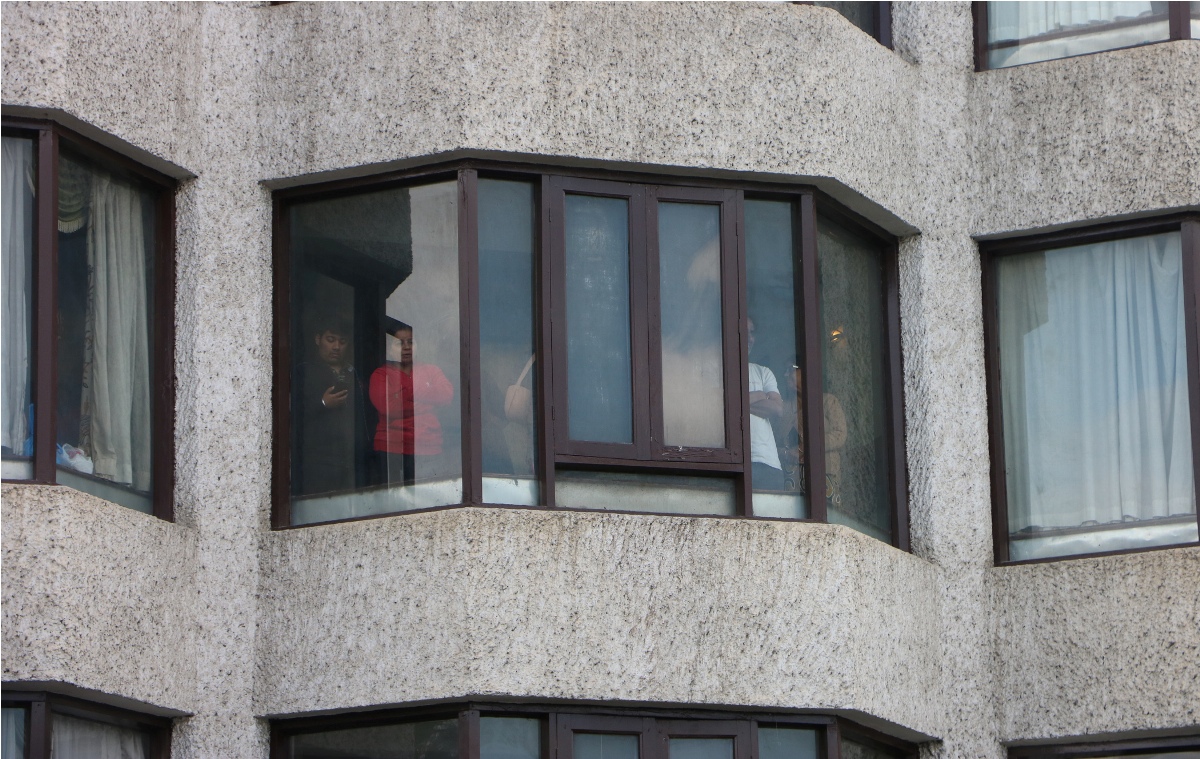by Ajaz Afzal Lone
Modern scientific medical science accepts and adopted the measures provided in Islam to deal with a pandemic. Islam has played a pivotal role in the development of health care, medicine and healthy lifestyle

The World Health Organization (WHO) defines health as not merely the absence of disease but a state of the total well-being of an individual, physically, mentally and socially.
In the Constitution of India, public health is not expressly mentioned as a fundamental right. However, the Apex Court in State of Punjab v Mohinder Singh Chawla, expanded the horizon of the right to life by holding that the right to health is integral to the right to life and the government has a constitutional responsibility to provide health care facilities.
In Islam
In Islam health is placed as second in importance to faith. The Prophet [peace and blessings be upon him], has said: “Second to faith, no one has ever been given a greater blessing than Health”. As regards health, Islam takes a holistic approach. Physical, mental, and spiritual health cannot be isolated from secular life; they are three components that make a completely healthy person. When one part is injured or unhealthy, the other parts suffer. Some of the health issues that Islam addresses include:
Epidemics
Covid19 is recognized as a contagious disease, which may result in death in severe cases. In Islam, Quran and the hadith provide plenty of information about the emergence of the plague, its spread, and precautionary measures. Regarding it, a hadith is enlightening;

“Aisha, wife of the prophet,[PBUH] said: I asked the Messenger of Allah about the plague, he told me that it was a punishment sent by Allah on whom he wished and Allah made it a source of mercy for the believers, for if one in the time of an epidemic plague stays in his place patiently hoping for Allah’s Reward and believing that nothing will befall him except what Allah has written for him, he will get the reward of a martyr.” Ṣaḥiḥ Bukhari 3474. Sometimes the pain and suffering people go through is a punishment, and sometimes it is a test. It warns;
“Surely We will test you with a bit of fear and hunger, and loss in wealth and lives and fruits, and give glad tidings to the patient.” Al-Quran 2:155.
Thus, for Muslims, a plague is anʿazaab for those who do not obey God and a trial for those who follow Him. In this way, an epidemic becomes a source of mercy for muminin by not only bringing them closer to Allah but also ensuring their success in this world and the Hereafter.
The Quarantine
Furthermore, the concept of quarantine to restrict the spread of infectious diseases was being practiced during the time of Prophet Mohammad [PBUH] as he asked neither to enter nor to come out from a plague inflicted area. Ṣaḥiḥ Bukhari: 3474.
This, practice proved to be effective in the recent Covid pandemic also not only state level but at the global level. Islam and modern medical science share almost the same precautionary measures to control this pandemic, which are prescribed in Islam.
Modern science advised that hygiene will restrict infection. Islam also emphasises and supports a healthy lifestyle.

“Abu Malik Al-Ashari reported that the Messenger of Allah [PBUH] said: ‘Purity is half of iman’ [faith],” Sahih Muslim: 223.
Hygienic practices in Islam include cleanliness during Salat [obligatory prayer] through Wazu [partial-ablution] and Ghusl [full ablution], as well as dietary laws and toilet etiquette for Muslims.
The importance of cleanliness in Islam is emphasized in Quranic verses that teach how to achieve ritual cleanliness. Al-Quran 2:22. It is considered sunnah to maintain oral hygiene by brushing one’s teeth known as miswak. Purify your clothes, keeping yourself and your surroundings clean, keeps you fit and safe and immune to diseases and illnesses.
Medicine and Mental Health
Muslims seek guidance from the Quran and Sunnah in all aspects of life, including health and medicine. “Allah did not produce a disease, for which He did not also create its treatment,” Ṣaḥiḥ Bukhari: 5678. The Prophet Muhammad [PBUH] once said.
Muslims are encouraged to investigate and use both conventional and modern medicine, believing that every treatment is a gift from Allah. The Prophet not only instructed sick people to take medicine, but he himself invited expert physicians for this purpose.” D.o.H. p.50, As-Suyuti’s Medicine of the Prophet p.125;
During his times some of the traditional medicines that were used include honey, black seeds, olive oil, zamzam water, dates, siwak etc. Apart from these, the Prophet Muhammad [PBUH] urged his followers to sustain themselves from overeating to the detriment of their health.

Our Prophet [PBUH] advised us to focus on our mental health as well as physical health. Keeping a peaceful mind and accepting life changes can greatly help in maintaining our mental health.
A man once asked Prophet [PBUH], “give me advise”, upon which the Prophet [PBUH], said, “Do not become angry and furious”. Al-Bukhari 10:456. Prophet [PBUH], said if the person controls his anger he can easily control everything else; anxiety, depression, tension and stress. Al-Adab Al-Mufrad 1317.
Controlling anger can relax your mind, which reduces the chances of strokes and other fatal illnesses. The Islamic world, in its early years, had a pioneering approach concerning mental health and psychiatry. The first psychiatric hospitals was founded in Baghdad in 705 AD during the reign of the caliph Al-Waleed ibn Abdel-Malek.
Contribution of Islamic Scholars
Healthcare and Medicine have benefited from the contributions of Islamic scholars all over the globe. In Baghdad, the first hospital was built in 706 AD. The prominent Islamic scholars and their contribution to health care are as follows;
Ibn Sina: He is known as the father of early modern medicine and one of the most important doctors, astronomers, philosophers, and authors of the Islamic Golden Age. He based his research and writings on the contagious nature of infectious diseases, the introduction of quarantine to limit the spread of contagious diseases, the introduction of experimental medicine, evidence-based medicine, clinical trials, randomized controlled trials, efficacy tests, clinical pharmacology, neuropsychiatry, risk factor analysis, the idea of a syndrome, the importance of dietetics, the influence of climate on health etc.
Al Razi: He was the chief physician of the Baghdad hospital. He is being considered the father of paediatrics for writing The Diseases of Children, the first book to deal with paediatrics as an independent field of medicine. He formulated the first known description of smallpox in his al Judariwaal Hasbah, the first book describing smallpox and measles.
Ibn Rushd: He wrote a medical encyclopaedia called Kulliyyat Fi Al-Tibb [general medicine], known in its Latin translation as Colliget.
Ibn Nafis: He dealt with pulmonary circulation which was a new explanation in his time based on his anatomical knowledge, The blood from the right chamber must flow through the pulmonary artery to the lungs, spread through its substances, be mingled there with air, pass through the pulmonary vein to reach the left chamber of the heart.
Abual-Qasim: He is considered the father of modern surgery. In his Al-Tasrif [Medicine and Surgery], he introduced his famous collection of over 200 surgical instruments include the scalpel, curette, retractor, surgical spoon, sound, surgical hook, surgical rod, and specula and the use of catgut for internal stitching is still practiced in modern surgery.
Hassan Ibn al-Haytham: He was a famous medieval Muslim scientist. He is considered the father of optic for his influential Book of Optics, including experiments on lenses, mirrors, refraction, reflection, and the dispersion of light into its constituent colours.
Conclusion

Modern scientific medical science accepts and adopted the measures provided in Islam to deal with a pandemic. Islam has played a pivotal role in the development of health care, medicine and a healthy lifestyle. Hence understanding Islamic values can help healthcare professionals deliver better health care services to mankind. Islam lays stress on the value of health and encourages people to participate in activities that improve their health.
Health-promoting practices are mentioned recurrently in Quranic verses and Hadiths. The practice of these scriptures to raise health consciousness among patients and doctors assumes much significance in the current pandemic situation.
(Author is a Research Scholar at Aligarh Muslim University. The opinions expressed in this article are those of the author’s and do not purport to reflect the opinions or views of Kashmir Life.)















